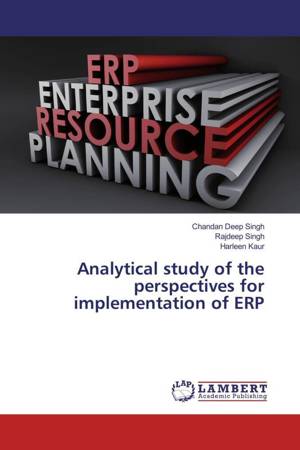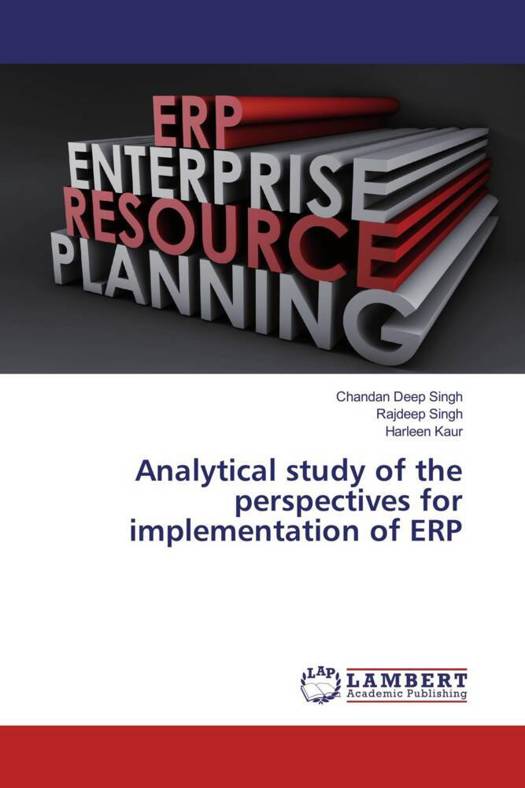
- Afhalen na 1 uur in een winkel met voorraad
- Gratis thuislevering in België vanaf € 30
- Ruim aanbod met 7 miljoen producten
- Afhalen na 1 uur in een winkel met voorraad
- Gratis thuislevering in België vanaf € 30
- Ruim aanbod met 7 miljoen producten
Analytical study of the perspectives for implementation of ERP
Chandan Deep Singh, Rajdeep Singh, Harleen Kaur
Paperback | Engels
€ 35,45
+ 70 punten
Omschrijving
Enterprise Resource Planning is a process for accounting-oriented computer information system that assists enterprises to define and plan on the resources required during the operation process of purchase, production, distribution, and strategic planning to satisfy customers' orders. Basically, it evolved from MRP-II which further was developed from MRP. In this survey based research work, an effort has been made to study the outlook of ERP implementation that is, factors contributing to ERP implementation, role of higher officials and successfulness of the project. The integration among business functions facilitates communication and information sharing, leading to dramatic gains in productivity and speed. Cisco Systems, for example, harnessed ERP to help it become the market leader in the global networking industry. Cisco's ERP system was the backbone that enabled its new business model Global Networked Business based on the use of electronic communications to build interactive, knowledge-based relationships with its customers, business partners, suppliers and employees.
Specificaties
Betrokkenen
- Auteur(s):
- Uitgeverij:
Inhoud
- Aantal bladzijden:
- 72
- Taal:
- Engels
Eigenschappen
- Productcode (EAN):
- 9786202013383
- Uitvoering:
- Paperback
- Afmetingen:
- 150 mm x 220 mm
- Gewicht:
- 126 g

Alleen bij Standaard Boekhandel
+ 70 punten op je klantenkaart van Standaard Boekhandel
Beoordelingen
We publiceren alleen reviews die voldoen aan de voorwaarden voor reviews. Bekijk onze voorwaarden voor reviews.









